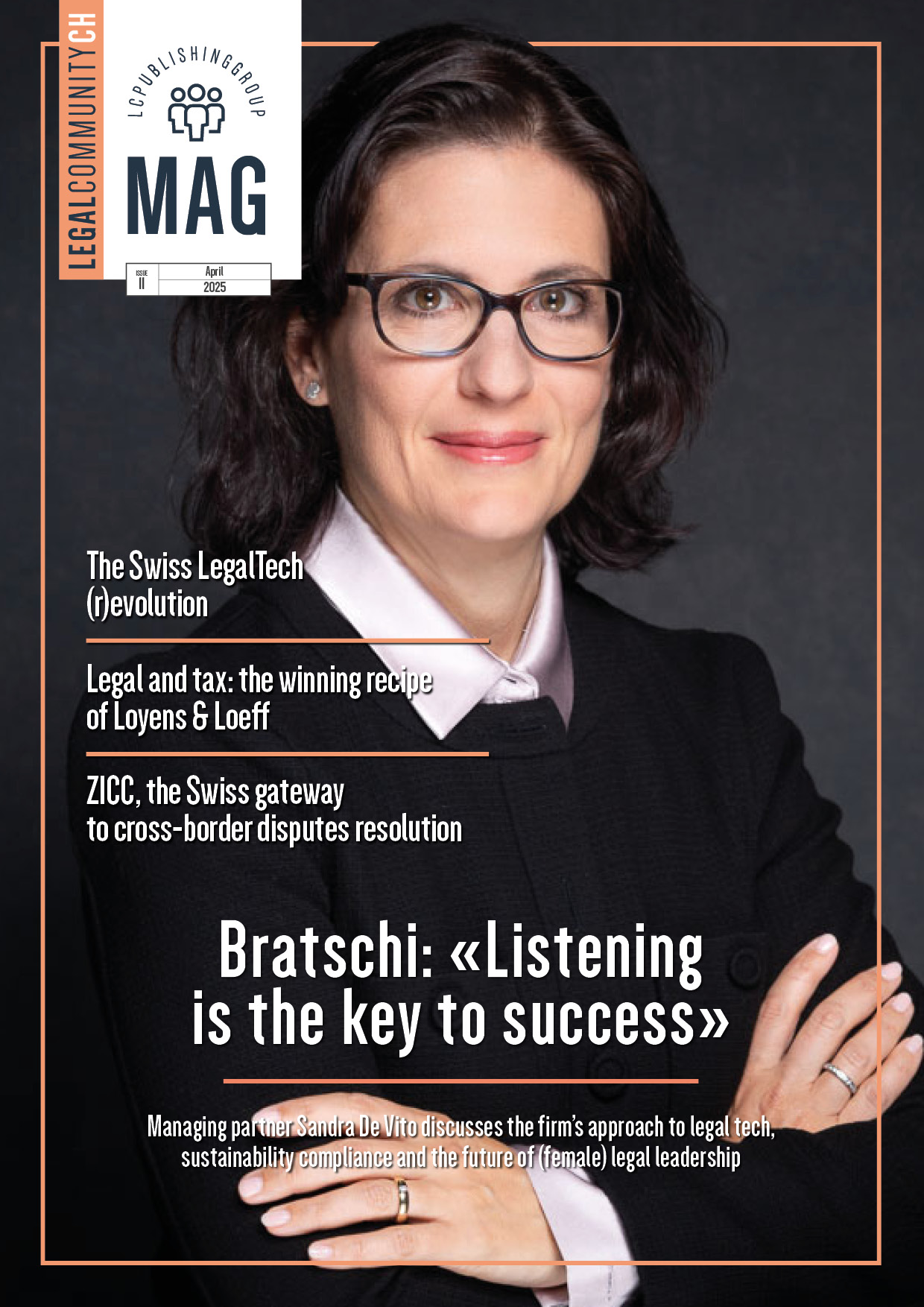Susskind: «The age of transformation begins»
(By: Nicola Di Molfetta; Translation: Alessio Foderi, article «Susskind: comincia l’età della trasformazione» published on MAG 136)
«Patients do not need surgeons, but health. Whoever buys a drill actually aims to a hole. And those who go to a court or a lawyer want justice or the solution to their problem». Richard Susskind eats a candy and shares his vision of the future for the legal services market. MAG meets him in a room at Deloitte’s headquarters in Milan before he begins the presentation of his latest book, Online Courts and the Future of Justice.
Chairman of the Society for Computers and Law, technology advisor to the Lord Chief Justice in England and Wales, chairman of the advisory board of the Oxford internet institute: this series of titles partly tell the story of this professor, who for more than thirty years has been dealing with the connection between technology and justice.
The historical moment is interesting. «The distinctive feature of this coming decade will be the use of technology to create new ways of producing the results that people want. And in the legal services market, we will no longer be talking only about automation, but about transformation».
Do you list yourself among the ones convinced that the next decade will be crucial for digital transformation linked to legal market and profession?
I think so. But, at the same time, I don’t think transformation concept is clear among people.
What do you mean?
For the first 40-50 years, legal technology has served to automate certain activities. So professionals have used technology simply to make existing work activities faster and better.
So, what does the concept of transformation imply?
The transformation occurs when you start using technology to do things in a completely new and different way. In ways that would be impossible without technology. The example of online courts is clear. It is not a question of digitalizing or computerizing the activity of the courts as we know them. The digital transformation of justice involves adopting completely new ways to enable people to resolve their legal issues.
So?
So, it’s true that people talk about digital transformation. But it’s also true that when you explain what it entails, people start to be skeptical. They’re talking about digital transformation. But they’re actually thinking of automation. The truth is that we’re at the end of the era of simple automation. It is no longer just a matter of optimizing and speeding up the administration of justice or the management of legal services. We need something more radical. Expanding citizens’ access to justice. And meeting business world’s necessities in a new way.
Will it be the decade of the transition from weak to strong AI?
It’s not relevant. At least not for me. That’s the distinction you make between machines that can think and machines that can’t. We don’t have to focus on how machines produce a result. But on the result itself. If a computer can sketch a document better than a human, or if software can identify the most important documents in the context of due diligence before and better than a lawyer, I don’t care if the machine is equipped with weak or strong AI. We must not fall into what I call AI fallacy.
Can you explain it better?
Many are convinced that the only way a machine has to prove that it is intelligent is to replicate human abilities. But it’s a mistake that a lot of AI researches makes.
Why?
Because machines work in a complete different way. Machines follow sophisticated processes, process huge amounts of data, use algorithms to produce results that a human being produces unconsciously and instinctively thanks to his intelligence. People underestimate how powerful weak AI can actually be.
Do we have then to focus on machines that are not thinking but capable of great performance?
We won’t have strong AI in this decade, but we’ll have machines that can outperform us in many activities. We will not have artificial general intelligence but we will have many technologies capable of carrying out extraordinary activities. We don’t have to worry about how a technology works, rather we have to focus on the outcome, the results produced.
Do we have to start thinking about how technology can work with lawyers?
We certainly need to think about how we can use these advanced technologies. The court system and the justice system don’t perform well. Less than 50% of the world’s population has access to the justice system as it is organized today. And in some countries, like Brazil, there are 100 million people who can’t access the courts. For too many people, the courts are too expensive, too slow, incomprehensible unless you are a lawyer. And this is not just true for individuals and consumers. The same can be said for companies. I talk to many general counsels who are looking for faster, cheaper and easier solutions.
The technological shift is needed…
I think that the most effective way to answer this question is to use these increasingly capable technological systems. Human beings, alone, are not and will not be able to meet the market demand for legal assistance. In a society that is becoming more complex every day, the need for legal services and compliance is constantly growing. The interesting question, at this point, is how this need will be met.
In this context, will the relationship between lawyers and machines be competitive or collaborative?
That is a fundamental question. In the medium term, we will work with machines. In the long term, however, the machines will replace us. The 20’s just begun will be a season of collaboration between human being and machines. But when we enter the 30-40s, the amount of activities that can only be carried out by humans will be tremendously reduced.
The lawyers won’t disappear tomorrow, but…
Not tomorrow, but I think that in the decade just started we will see lawyers working with technology and inventing very effective ways of carrying on this profession. But after the next ten years, the field of action for human lawyers will be greatly reduced.
What should a young lawyer do?
First of all, he/she should ask himself/herself: “Am I interested in competing with these systems or is it better that I start building these systems?”. This is the time to think about new ways to provide legal services.
Law firms are investing a lot. But are they doing it the right way?
This is the second fundamental question. Most of the investments law firms are making in technology are in the back office, servers, email, accounting, and various media. Law firms are still investing too much in automation and still too little in transformation. They invest in improving their old way of working instead of focusing on new ways to deal with the market and its needs. To give new answers.
Big four and legaltech are doing better?
The big four face this challenge without the weight of a legacy to be protected. They start with a blank sheet and can use transformative technologies from the beginning. If you are a great law firm it is difficult to put aside your tradition and your old way of working. Above all, it is difficult if much of your turnover and profits come from old ways of practicing the profession. Legaltech is growing. They’re doing what Amazon has managed to do with the books trade. So, it’s possible that some of these tech start-ups will be able to invent some of the new ways to handle legal issues.
Who are the real game changers right now?
I think it’s too early to tell. I do not see a single organization or a single law firm that currently can be considered a pioneer capable of guiding this evolution. It is interesting to note that in the legal market there is not a firm that is one step ahead of others in terms of commitment to technology.
What does it depend on?
I believe that this depends on the attitude that characterizes the strongest and most institutional law firms. They are more committed to avoid falling behind by a competitive disadvantage than trying to distance competitors by gaining a competitive advantage. So, we have a large group of leading law firms that invest heavily but among which none stands out or is different from the others.
Does this also apply to the other subjects we have mentioned before?
All the Big Four declare their commitment to technology, but none can be said to be preeminent. As for legal tech, they are beginning to emerge now, so it’s hard to say who among them will play a decisive role. My guess is that by 2025 a small number of leading organizations (although we don’t know what that means) will emerge dominating large shares of the market. Just as an interesting share of the industry will be dominated by some players coming from the publishing world such as Thomson Reuters or Lexisnexis.
















